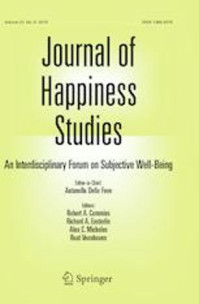
Abstract
The low perceived subjective well-being of potential parents has been put forward as an explanation for the low fertility rates in developed countries. Accordingly, research about the effect of parenthood on life satisfaction is increasing, although the related studies are mostly restricted to western countries. The case of Hungary represents a great opportunity to extend the scope of the related research as this country has one of the lowest fertility rates in Europe, along with an exceptionally long and extensively utilised system of parental leave. The issue is examined here with a genetic matching method using longitudinal data from the Turning Points of Life Course survey (Hungarian GGS). Overall, the research described in this paper finds that fertility has a positive effect on subjective well-being in general. Moreover, not only a first child but also a second one increase subjective well-being. However, observation of the moderating effect of gender reveals that women benefit from having children both in the short and long term, whereas men benefit only in the short term. To sum up, this paper finds that pre-existing theory that uses the link between parenthood and subjective well-being to explain fertility trends makes a limited contribution to the discussion about the Hungarian situation.
Keywords
Parenthood Subjective well-being Matching Longitudinal data Fertilityhttps://link.springer.com/article/10.1007/s10902-019-00166-y

